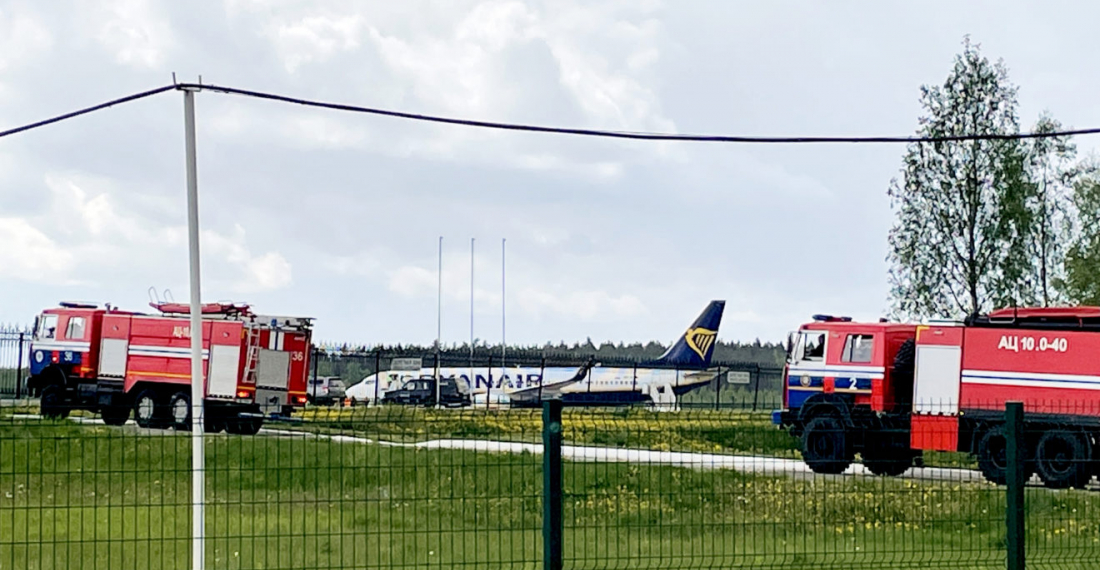The European Union is today faced with one of the most serious challenges to its credibility as a foreign policy actor since it came into being.
The forced diversion by Belarus of a flight between two EU member states on Sunday (23 May) constitutes an act of international piracy at the heart of Europe.
Belarus forced the Ryanair plane, which was flying from Greece to Lithuania, to land in Minsk claiming a bomb threat to the aircraft. The aircraft was due to land in Vilnius when Belarusian authorities scrambled a fighter jet and diverted it to the country's capital, in an operation which the Belarus state media said was personally authorised by President Alexander Lukashenko. In Minsk, the Belarus authorities subsequently arrested the Belarusian journalist and activist Roman Protasevich, who was a passenger on the plane.
There has already been an expression of outrage across Europe and beyond, but outrage is now not enough.
Relations between Belarus and the European Union have been difficult for many years, and deteriorated even more after the flawed presidential election in Belarus last year. However, it needs to be made clear that this is now no longer about human rights and free elections in Belarus, important as these things are. This is now about the European Union's ability to protect itself and its citizens, and about international air safety in general.
The European Union must now act accordingly, and must do so swiftly and decisively. In the past the argument that isolating Belarus further was counter-productive had some validity. It does not anymore. Under President Lukashenko, Belarus is now a pirate state, and must be treated like one. This will undoubtedly cause some pain to the Belarusian people who are not to blame for the recklessness of their leader, but this is now inevitable.
This situation also tests Belarus' friends and allies, foremost of which, Russia. It is one thing for President Putin to stick with his ally in the face of criticism about a flawed election, quite another if he does so now when an act of state piracy has been done. Putin is due to meet Lukashenko in Sochi in the next days. We will therefore know soon how Russia will react to this outrage. Other countries too need to be wary. For them too, relations with Belarus cannot be business as usual.
Fortunately this incident has happened at the time when the transatlantic relationship is strong. The US has already expressed strong condemnation of the incident, not least because the lives of US citizens on the plane were put at risk. An EU co-ordinated approach with Washington is necessary, and appears already to be happening. Lukashenko must be made to understand that he has crossed a red line, and that there is a heavy cost to pay as a result.






